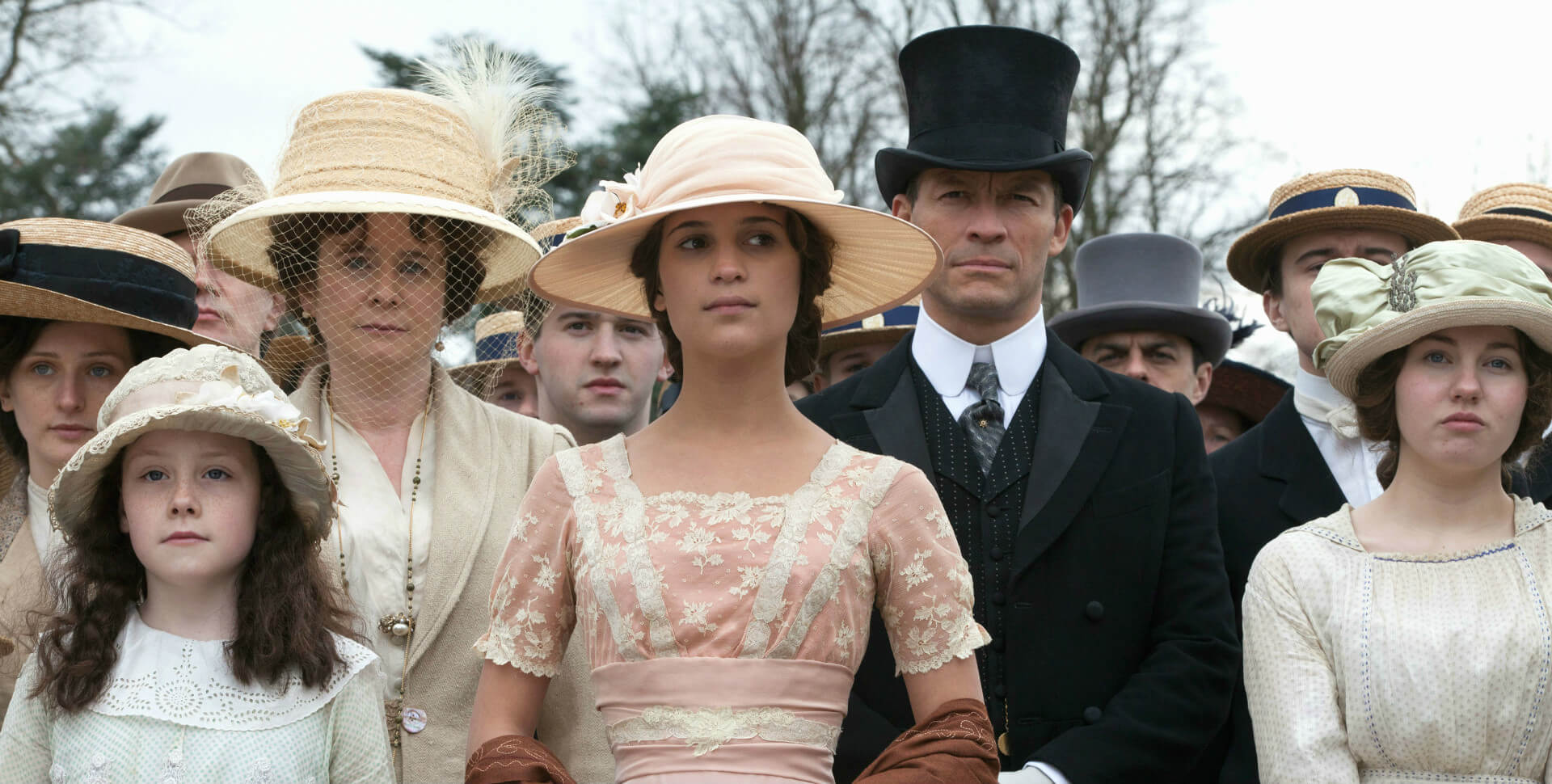Testament of Youth [2014] is a World War I epic based on the best-selling memoirs of Vera Brittain (Alicia Vikander). It follows the intelligent and free-spirited Vera who dreams of attending Oxford University along with the charming and brilliant Roland (Kit Harrington), Vera’s brother Edward (Taron Egerton) and his sweet friend Victor (Colin Morgan). Each of them is on the cusp of adulthood, but they are soon separated by the onset of the War and their futures take a different turn.
The Voice of a Generation: Vera Brittain has been heralded as the voice of a generation. Her memoirs, which are also called Testament of Youth, captured so much of the feeling of this time and the film reflects this very well. You would be forgiven in the beginning for believing this film is just a tragic war romance, but it is just as much about the futility of war, the minutiae of everyday life during the war, grief, loss and memory. The film is all told from the perspective of Vera and it begins as a romance between Vera and Roland, with all of the elements one would expect from a period romance. Letter writing, poetry and long walks in beautiful English countryside locations. But, the two are separated by the war and Vera gives up her dreams of Oxford to become a nurse. We follow her as she goes from the university’s hallowed halls to the hospital where she trains and finally to the Somme just behind the front line. Because the story’s focus is Vera the film touches upon details that are often missing from other War films. Some of the most seemingly insignificant details are the most memorable. Picking up a newspaper on a quiet street and opening to the pages of listed fatalities where the names are noted in the minutest typeface imaginable, or the pressed bluebells found in a dead man’s kit. It makes everything feel more personal, and this is partly helped by the fact that it is a true story and the characters are real people. It’s a film that speaks for an entire generation of young men and women, but it’s simultaneously deeply personal. Alicia Vikander also has to be mentioned for her astounding performance as Vera.
A War with no battles: Testament of Youth isn’t a film anyone would call gritty. Even though it’s set during World War I, it actually never shows a battle, this is primarily because it’s focus is on Vera’s character. The cinematography is beautiful, each shot is placed with the utmost care of an artist. The lingering pace and soft lighting, particularly at the beginning of the film, gives it an almost dreamy quality, but that doesn’t necessarily mean the film pulls any punches. What’s strongest in the film is the feeling of futility and senselessness. Although the film is romantic, it never glorifies or romanticizes the war itself. Deaths go unexplained; there is no sense of closure or even heroism. This adds so much to the realism of the film, and it also offers so much insight into Vera’s character, of her own increasing feelings of futility, without clunky exposition.
Heroes and Villains: The real Vera Brittain was known not just for her memoirs, but for her political efforts as a pacifist and the film touches upon how the war shaped her beliefs and her character. It never simplifies the war into a heroes and villains battle, nor does it ignore the other side of the war completely so that it’s easier to digest. When Vera is sent to the Somme she has to look after a hut of German soldiers, and so much of her character development is felt during this time, you get a sense of her reactions to the enemy as people, rather than just as ‘the enemy’. This all culminates at the end of the film in a speech, beautifully delivered by Vikander, calling for the end of the cycle of revenge upon revenge.
You might need a moment to collect yourself after watching Testament of Youth;
it’s absolutely enthralling and absolutely heartbreaking.

